This page shows encapsulated and native IPv6 traffic, entering and leaving AS48514 (CSBNET).
- ip4-Teredo is measured at AS border as IPv4 UDP traffic to/from ports 3541-3548.
- ip4-6in4 is measured at AS border as IP protocol 41.
- ip6-Teredo is measured at AS border as IPv6-native traffic, to/from the Teredo prefix 2001::/32.
- ip6-6to4 is measured at AS border as IPv6-native traffic, to/from the 6to4 prefix 2002::/16.
- ip6-routable is measured at AS border as IPv6-native traffic, to/from the currently used IPv6 prefix, 2000::/3, excluding Teredo and 6to4.
- ip6-other is measured at AS border as IPv6-native traffic, to/from any other IPv6 address than the ones covered by the prefixes mentioned above.
We run a globally announced 6to4- and Teredo-relay since 2010-02-17. Better graphs distinguishing this traffic from our local users will come at some point.
At 2010-02-28 14:30 CET the ip4-Teredo measurements were adjusted to encompass the port(s) that our local relay runs at.
At 2010-03-29 12:00 CEST, our peer Bahnhof (AS8473) started accepting the 2001::/32 prefix we announce to them.
At 2010-03-29 18:00 CEST, load balance from 1 running Miredo process to 8 running Miredo processes was enabled. It seems to work well. The drop of traffic between these two time periods was due to IPv4 packet measurements at border routers temporarily not capturing the new Miredo processes. (Big thanks to Bernhard Schmidt!)
2010-03-30. After a physical relocation of the server the miredo proceess do not operate correctly. Two of the 8 processes, that were the relays for a significant amount of the traffic that was being relayed before the move, are choking badly on ksoftirqd now when they go up. Awaiting time for proper investgation of this the Teredo announcement was pulled.
2010-04-03: Some observations: 1) If miredo and sit-6to4 run on the same machine, and the sit tunnel is incorrectly configured, miredo can suffer greatly. (d'uh). 2) If your sysctl's net.ipv6.neigh.default.gc_thresh{1,2,3} are too low, like the default of thresh3=1024, your miredo tunnel will not perform well.
2010-04-19: After an internal vote on the project, the experiment has now ended and we no longer export the 6to4- and Teredo-prefixes to the rest of the world. If you care about your users experience, set up your own local relays. Feel free to contact us if you want help.
If you have any questions, feel free to contact us using email with LHS=staff, RHS=csbnet.se. Or drop by #nvg @ EFnet (irc).
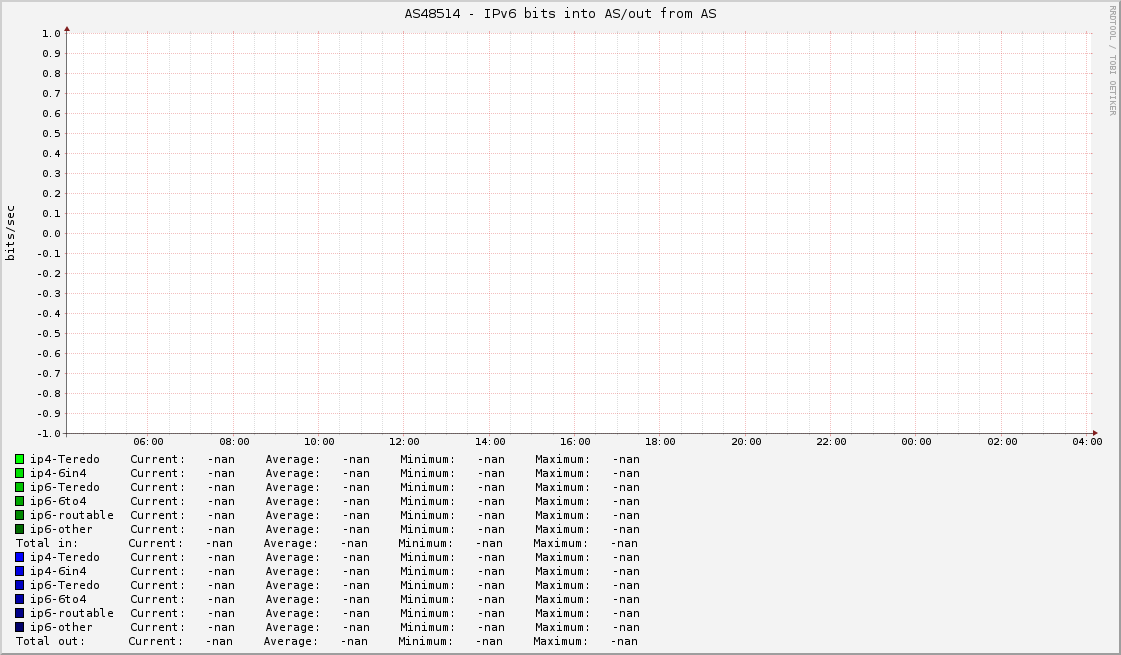
IPv6 traffic types (day).
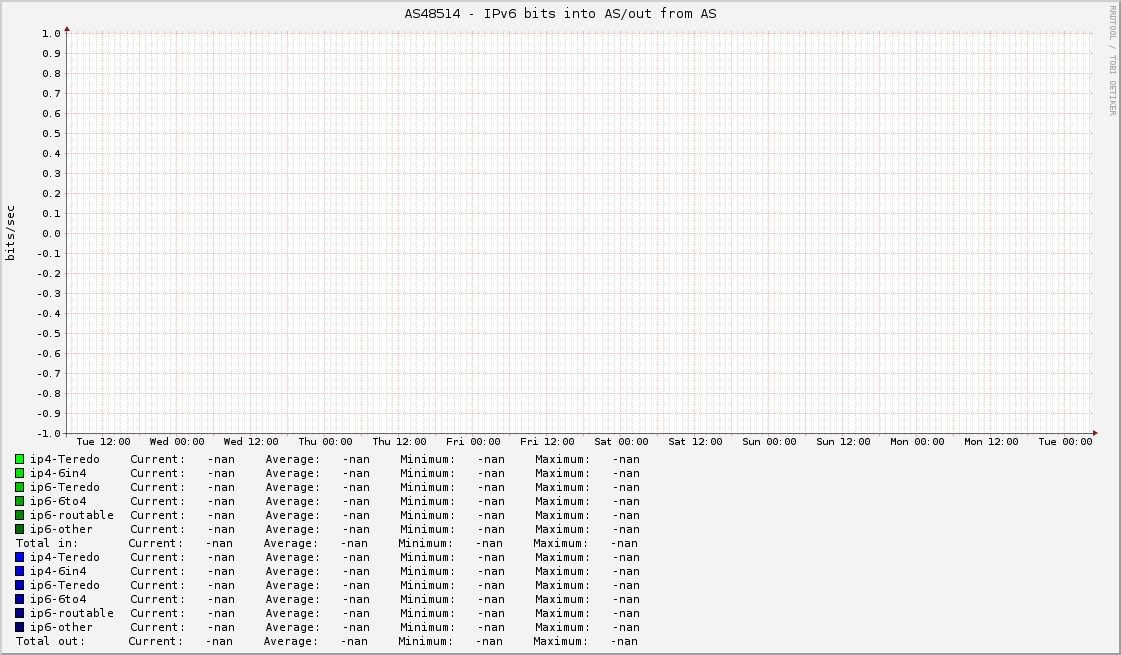
IPv6 traffic types (week).
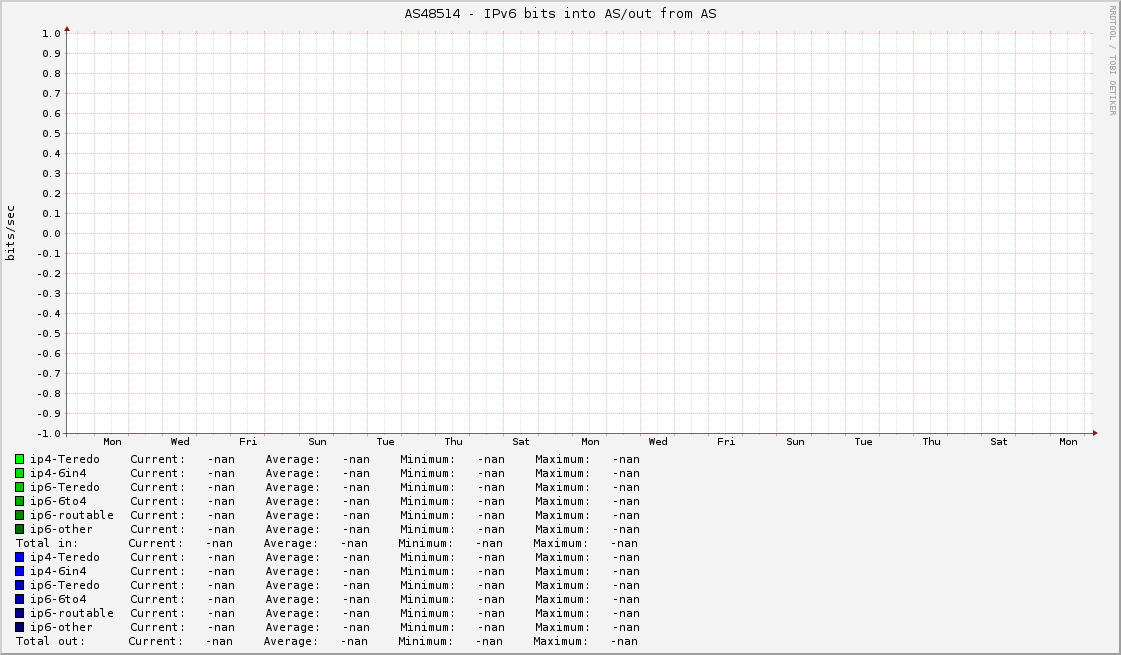
IPv6 traffic types (month).
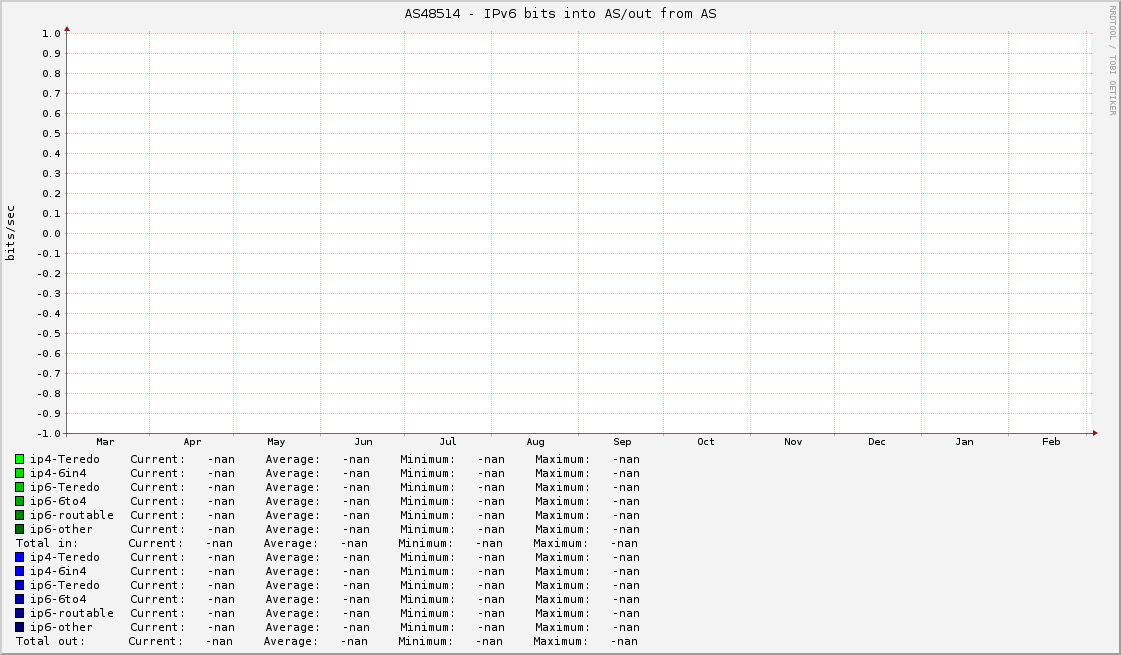
IPv6 traffic types (year).
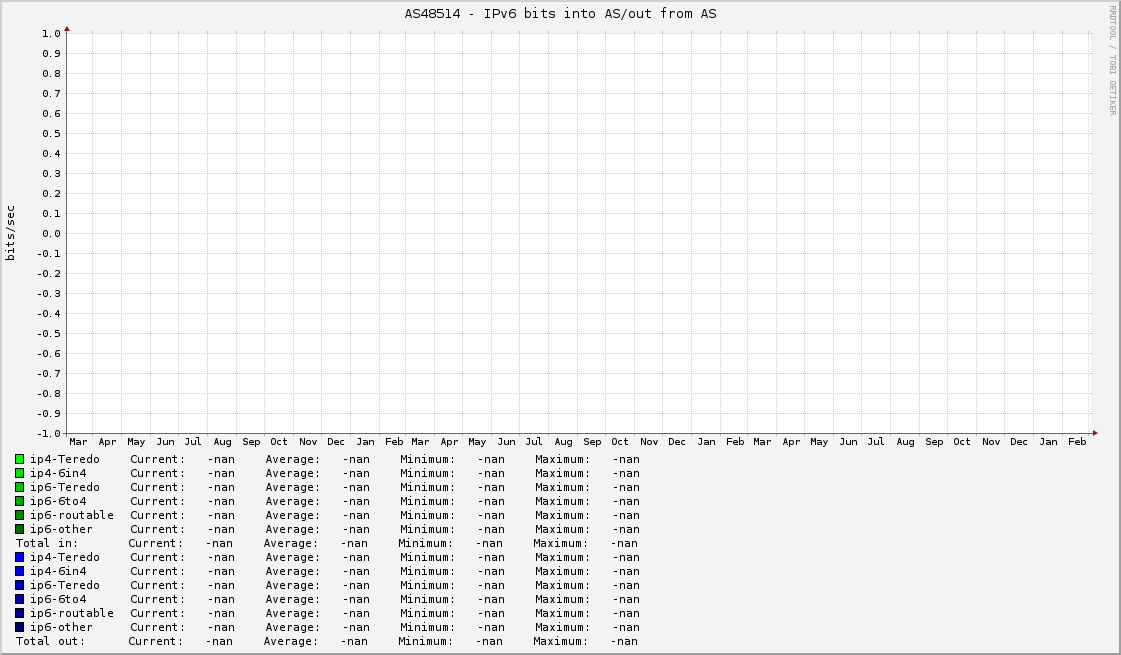
IPv6 traffic types (3-year).




